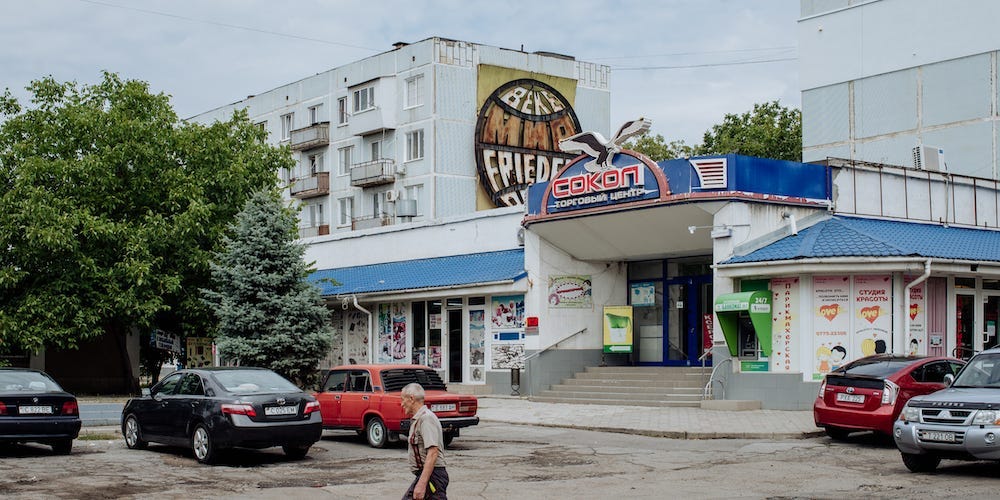- Industrial production has screeched to a halt in Transnistria after Russian gas flows were halted.
- The breakaway region of Moldova is heavily dependent on cheap Russian gas flowing via Ukraine.
- But Ukraine ended its agreement to transit the gas, plunging the region into an energy crisis.
A breakaway region of Europe has been forced to halt almost all industrial production after Ukraine ended the transit of Russian gas through its territory.
“All industrial enterprises are idle, with the exception of those engaged in food production — that is, directly ensuring food security,” Transnistria’s first deputy prime minister, Sergei Obolonik, said, per Reuters.
Obolonik said it was “too early” to say what will unfold, but the region risks “irreversible” changes if the problem isn’t quickly resolved.
“Enterprises will lose their ability to start up,” he added.
Transnistria, an autonomous region that broke off from Moldova in the 1990s, has been one of the hardest-hit following Ukraine’s decision not to renew a gas transit agreement with Russia on January 1.
The pipeline’s shutdown marked the end of an era for Russia’s oldest gas route to Europe.
Almost a hundred large- and medium-sized industrial enterprises operate in Transnistria, according to its chamber of commerce.
The region is pro-Russia and is largely Russian-speaking. It hosts about 1,500 Russian soldiers, ostensibly on national security grounds.
In December, its government said that it was “making every possible effort to maintain natural gas supplies” in the face of the Ukrainian decision, and blamed Moldova for not taking joint steps to ensure the supply.
But on Monday, local energy company Tirasteploenergo warned that it would cut heating and hot water to homes starting January 1, reserving supplies for hospitals.
The company advised families to seal drafts and gather in a single room to save heat.
It suggested sealing cracks in windows and balcony doors, hanging blankets over them, and putting all family members in one room, warning that temperatures could drop to 23 degrees Fahrenheit in the capital, Tiraspol.
Some towns have set up “heating points” and local authorities are offering hotlines to help people find firewood, the BBC reported.
The region’s leader, Vadim Krasnoselsky, has said that it has up to 20 days of gas reserves, and that energy production has switched from gas to coal, according to Reuters.
He added that there should be electricity for households through January and February.
Ahead of Russia’s full-scale invasion of Ukraine in 2022, Europe sourced around 40% of its gas from Russia. But the war sparked an unprecedented resolve to reduce countries’ dependence on Russian energy.
Many have cut their reliance and found alternative, often more expensive, sources of gas.
The loss of Russian gas will badly impact Transnistria’s economy, since the region has been getting gas basically free of charge from Russian state-owned giant Gazprom.
Moldova, an EU candidate country, could also be badly hit, as it gets 80% of its energy from a power plant in Transnistria. It faces a major hike in energy costs amid plans to switch sources, the BBC reported.
Other European nations could also be badly impacted, and Slovak Prime Minister Robert Fico has appealed to the EU to find a way to keep Russian gas flowing via Ukraine.
“Halting gas transit via Ukraine will have a drastic impact on us all in the EU — but not on the Russian Federation,” Fico said in a New Year’s address.
Read the full article here
















